CSUN Helps High School Graduates Reach for Bridge to the Future
No matter how hard she and her mother dreamed it, going to college in the United States was never a reality for Eloisa Varela. Nonetheless, Varela’s mother, Maria, was determined to ensure her daughter received a college education and planned to send Varela to a university in Mexico.
That all changed when Varela applied for and was accepted to a program called Bridge to the Future Scholars Program (B2F). B2F supports up to 25 high school graduates per year with a four-year, tuition-free CSUN education. Once at CSUN, B2F students receive all the services and support needed to successfully complete their bachelor’s degree at CSUN.
“I dreamed that my girl would go to college, but we had so many obstacles, especially financially,” Varela’s mother said in Spanish. “Then this opportunity presented itself and I was so happy. My dream has come true.”
Varela excelled in high school, achieving a 3.5 GPA and volunteering at the Boys & Girls Club of the West Valley, but her opportunities were limited because of her immigration status. As an undocumented student, Varela was ineligible to receive federal financial aid, so she sought other ways to attain an affordable education in the U.S.
“When I found out that I had gotten into the B2F program, I felt hope,” Varela said. “I also felt blessed that I was going to have the wonderful B2F team pushing me to do my best as well as my classmates, who always motivate each other.”
David Boyns, professor of sociology and director of the Institute for Community Health and Wellbeing, said B2F was the brainchild of the CSUN Institute for Community Health and Wellbeing and the Institute’s initiative Neighborhood Partners in Action (NPA), a program directed by theatre lecturer Doug Kaback and committed to assisting communities in the West Valley in identifying their needs as a community.
“CSUN faculty visited nonprofit organizations and schools, talked to community leaders, and mapped out the neighborhood’s assets and social challenges,” Boyns said. “This campaign revealed, unsurprisingly, that financial issues were a huge factor in a student’s decision of whether or not to attend college.”
The goal of B2F, according to Boyns, is to develop stronger relationships between CSUN and the community, and show parents and students that through B2F, obtaining a degree from CSUN is not only affordable, but also realistic.
Since B2F is a scholar’s program and not a scholarship, the program doesn’t only offer students tuition-free attendance, but also has initiatives in place to empower and help them graduate, Boyns said. These initiatives include peer mentoring and support activities to ensure students’ academic success.
Costs of operating B2F are seeded by external grant funding and the program is managed under the CSUN Institute for Community Health and Wellbeing. In 2016, B2F received a Collaborative Opportunity Grant (with Boyns and Kaback as co-Principal Investigators) from the Association of Public and Land-grant Universities, an organization dedicated to strengthening and advancing the work of public universities in the U.S., Canada and Mexico. This grant provides support for B2F staff and its general operating expenses, Boyns said.
For more information, or to apply, please email b2f@csun.edu or visit http://www.csun.edu/bridge-to-the-future.

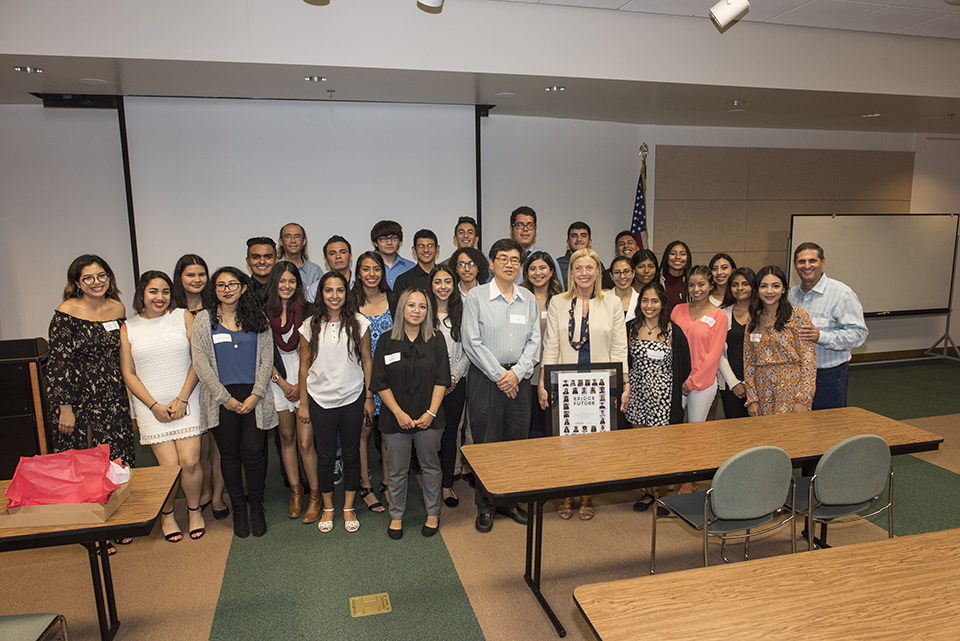
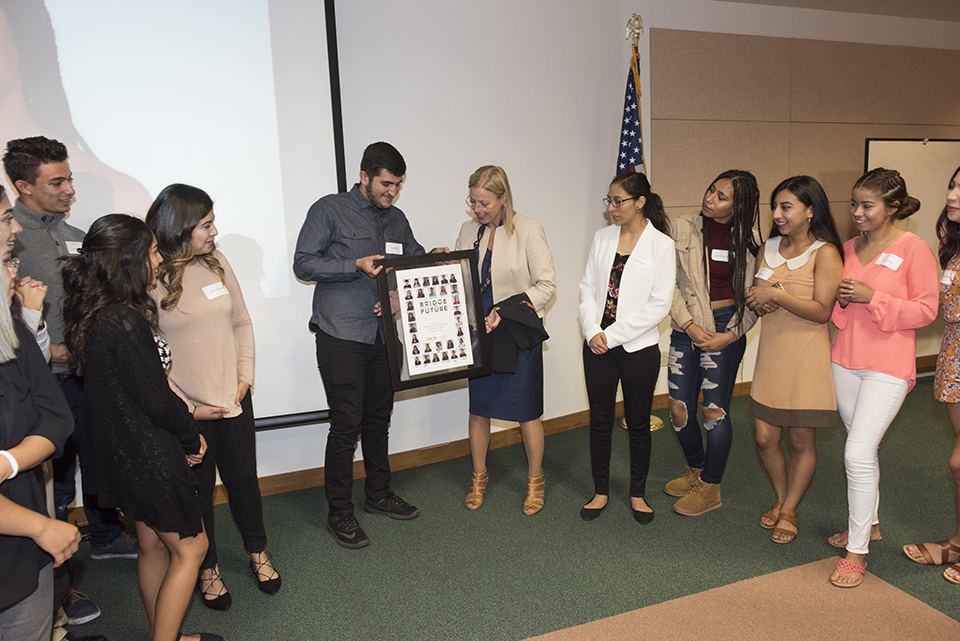
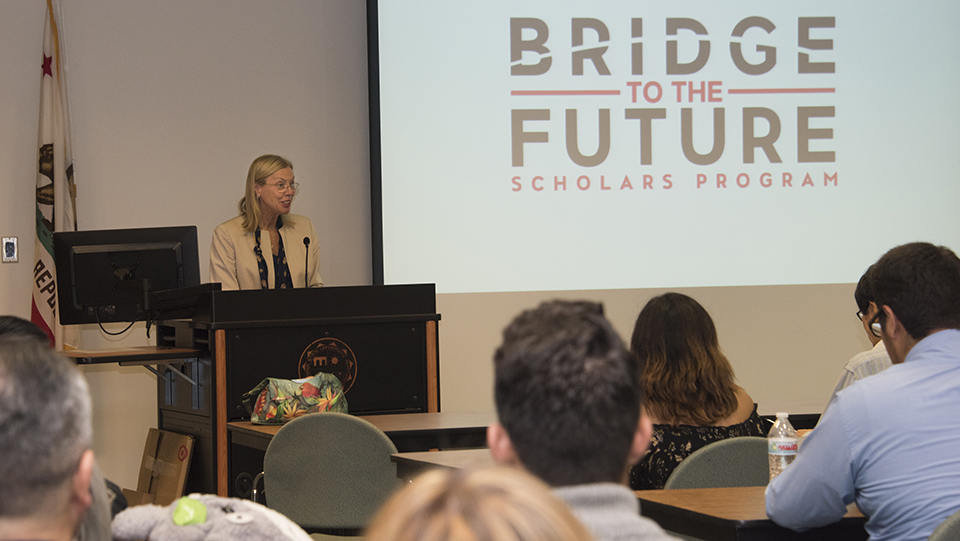
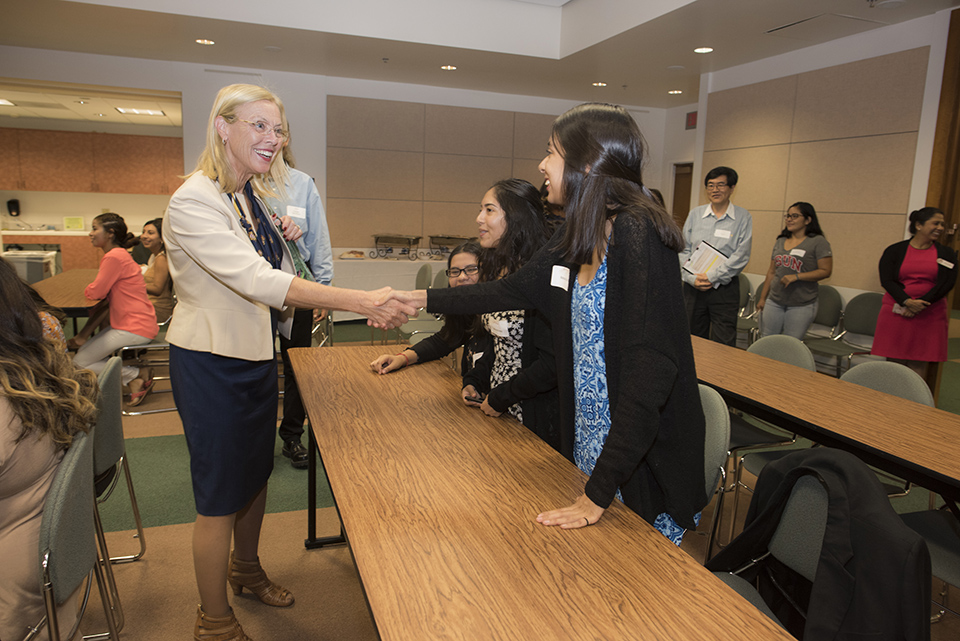
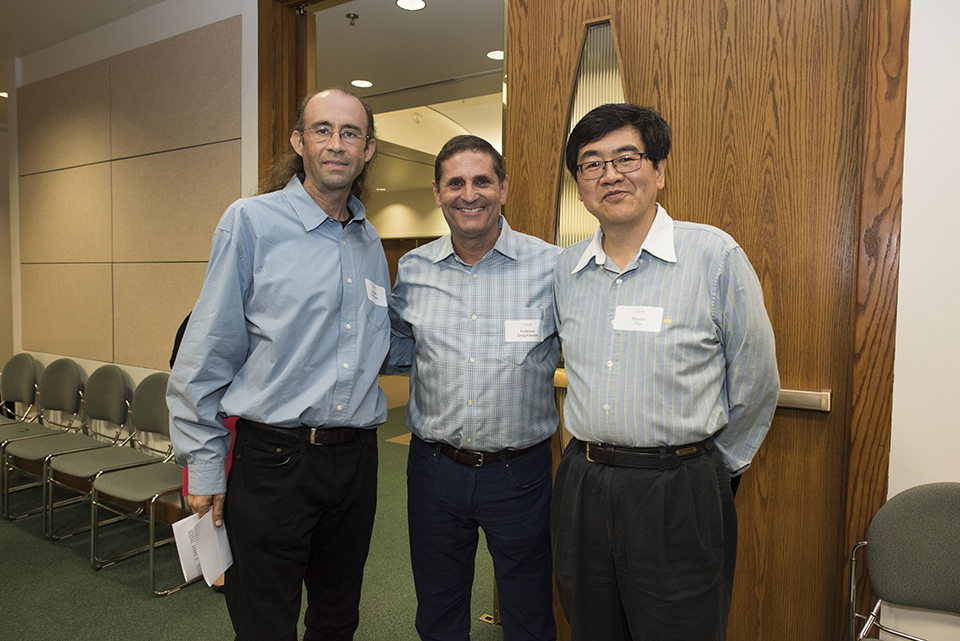
 experience
experience